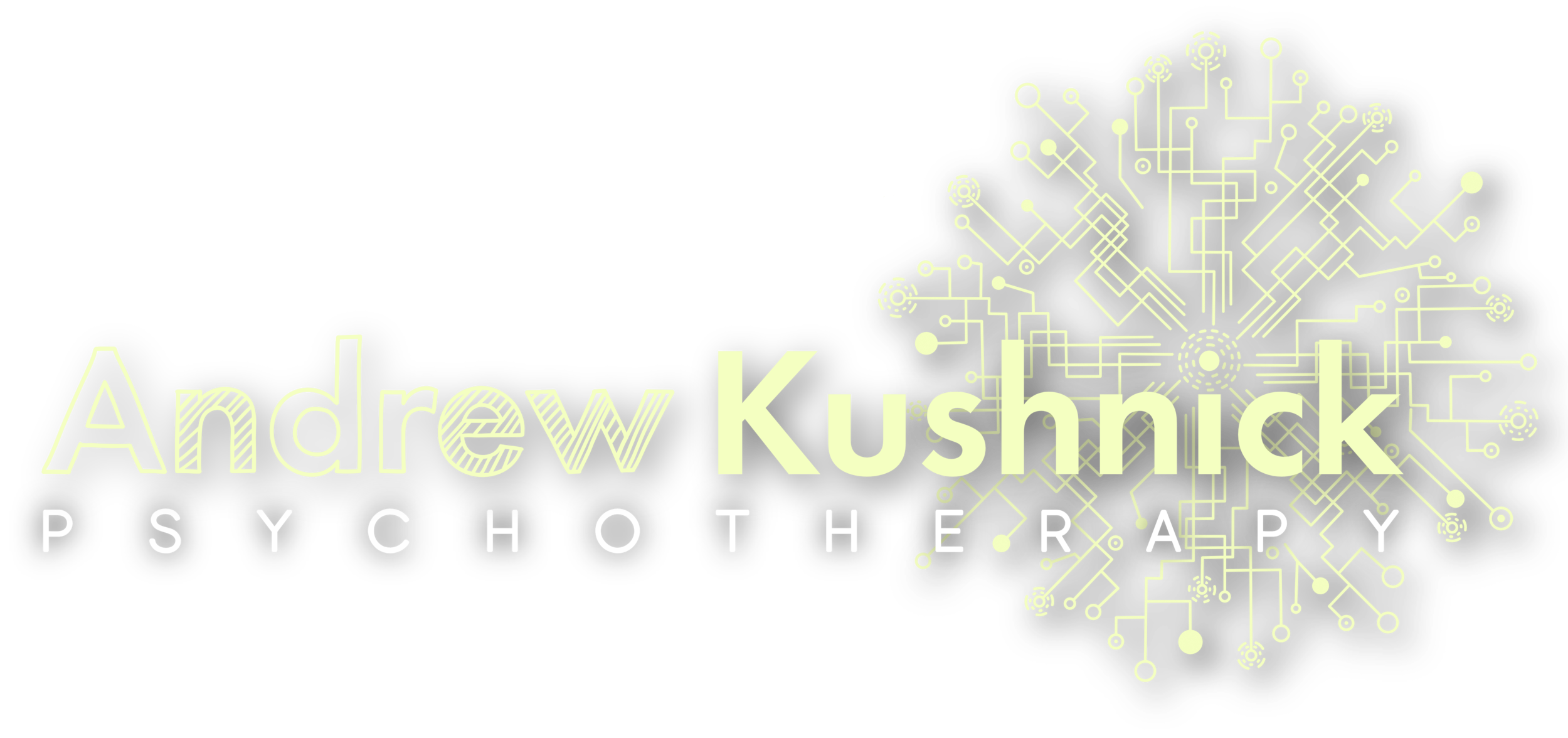Profiles in Tech, Part I: The Programmer, Productivity, and Prioritization
Welcome to “Profiles in Tech,” a blog series focusing on the unique mindset of the techie.
For the smart minds who are drawn to it, tech can be rewarding. There are also challenges, as is the case with any industry.
In my work as a psychotherapist in downtown San Francisco, I’ve been fortunate to get to know engineers, designers, and founders, as well as other professionals (marketers, attorneys, etc.) who work for both tech giants and small startups. Along the way, I’ve gotten a sense of what their work is like, how they feel about it, what keeps them up at night, and what motivates them. The emerging picture is fascinating and complex.
Each post within “Profiles in Tech” derives from an interview with someone who works (or has worked) within the industry. For the sake of anonymity, I’ve used pseudonyms and changed other identifiers. In each post, I’ll first relay their story, and will then offer a few reflections from a mental health perspective. My goal is to highlight themes that may lend themselves well to exploration in therapy.
--
Derek, 28, has always had an “insane work ethic,” as he calls it. When it’s channeled correctly, it allows him to do some pretty amazing things, but it can also be stressful and damaging at times, he admits. “In high school and college, I was pretty much working all the time,” Derek said.
However, the software engineer credits his work ethic for getting him to where he is today — which is a long way from where he came.
Derek grew up “borderline OCD” in a low-income household in the Dakotas, below the poverty line. “You had to work for everything,” Derek said. “If you wanted something, we couldn’t afford it, so you had to work for it.”
Derek paid his way through university, where he spent most of his time in the library, and he landed a college internship at Facebook. He went on to get a master’s degree in computer science from a prestigious East Coast university before returning to the Bay Area when Facebook offered him a full-time job.
After two years working in Menlo Park, he took another opportunity at LinkedIn, where he was happily employed until about 10 months ago, when he decided to leave the company, with its free lunches, commuter benefits, and 401(k)-matching, to start working at a four-person startup.
Despite the expected differences between a large tech company and a tiny startup, Derek claims to have a great setup. He has a good work-life balance, and his job only requires him to work between 40 and 45 hours a week. Better yet, even though “everyone has to do a lot more” because it’s a small team, Derek feels supported by his coworkers. He’s expected to check Slack and email when he’s not in the office, but Derek rarely has to work after 6 p.m. or on weekends. “We’re pretty good about being balanced,” he said. “We all agree that working too much is not sustainable.”
However, for Derek, agreeing that working too much isn’t sustainable is one thing. Closing the laptop and pushing pause on work is another. After all, he has an “insane work ethic.”
Besides his full-time job (with a good work-life balance and supportive colleagues), Derek freelances as a contractor, working with various companies and nonprofits on confidential security-related coding projects that he says are both “intriguing” and “have the potential to affect a lot of people.” Although Derek finds the work arguably more interesting than his day job and the extra money is an added bonus, he says his side hustle is often a source of stress for him.
“Combined with my full-time job, it’s a lot,” he said. “There are times that I have to switch from one job to the other, and it's kind of like non-stop working. When I’m not working, I feel guilty because I’m not being productive at one of the two. I guess some of it’s just an innate drive to be productive and to want to have a positive impact on the world.”
Between his full-time gig and his altruistic, money-making side projects, Derek estimates that he spends upwards of 70 hours a week working. And that doesn’t include the time he spends procrastinating, something he says he doesn’t do so much at his full-time job, but something he does quite a bit on his side projects. According to him, it’s a source of anxiety, especially when combined with his perfectionist tendencies. “I think procrastination is just an example of bad prioritization,” he said. “Prioritization is hard.”
Something else Derek struggles with is relaxing and spending money. “For a long time, those were two things I didn’t do,” he said, “because I felt like I either couldn’t afford to or I felt guilty.”
Working in tech has helped to relieve most of his financial pressures, but Derek admits that he still harbors a fair amount of guilt when it comes to spending money and taking time to unwind. That being said, Derek says that compared to where he was a few years ago, he’s doing a much better job with those two things today.
“One thing I think I’ve learned is that I need to spend more time to appreciate life more,” Derek said. “I don’t want to spend my whole life working and then ask myself ‘what did I even live for?’ I just need to do a better job scheduling my time.”
--
The autopilot life
So many of us wake up, head to work and go through the motions. We fill our free time however we can, making tons of plans, staying busy, staying productive. It may have furthered our career to push ourselves in this way, as was the case with Derek.
Before we know it, weeks or months have passed, and it starts to feel like Groundhog Day. We wonder where the time went. We slowly sense there must be more to life than work, and begin to question what we’re doing.
Scratching an itch
It’s helpful to take a step back and examine what compels us to reach for work stuff during our “off”-time. Our behaviors result from signals that the brain sends to our muscles, but what generates those signals? It’s interesting that Derek mentioned, “borderline OCD” from childhood. When intrusive thoughts pop up (e.g. “I should really get more done today”), it brings relief to perform some action to quiet those thoughts. Alleviating mild discomfort in this way is so common; this alone wouldn’t necessarily warrant a diagnosis of obsessive-compulsive disorder. It’s akin to scratching an itch.
Unhelpful beliefs
Where do these unwanted thoughts come from? In Derek’s case, given his early experiences with poverty, it’s understandable that he might feel guilty when he’s relaxing. Trauma, in the broadest sense, is anything we experience as distressing or disturbing. When children don’t have their basic needs met, over an extended period of time, the brain can easily register that as traumatic.
As they attempt to make sense of what’s around them, children adopt notions about themselves or the world (e.g. “I’m bad if I sit still,” “I must remain vigilant”). They then develop behaviors that help them adapt to those tough circumstances. Problems can arise in adulthood when the brain doesn’t recognize that the original threat (in Derek’s case, financial hardship) doesn’t exist in the present day, but the maladaptive beliefs and behaviors live on. Targeting these maladaptive beliefs in EMDR therapy can bring relief.
[As an aside, although this is not the case with Derek, it’s common for a similar trauma response to happen when someone unexpectedly loses their job. In their next work setting, either relaxing or “taking things for granted” may make them feel uneasy, resulting in a fixation on performance.]
Even when trauma is not part of the picture, so many of us hold unhelpful beliefs about productivity or about money — beliefs that push us to take on too much. Surely you’ve heard the expression “I’ll sleep when I’m dead” or have met someone who seems preoccupied with making themselves useful.
Work to the rescue!
For some of us, work is our go-to method of distracting ourselves from stress. For instance, getting lost in coding allows many a programmer to “zone out,” rendering them blissfully unaware of any worries or concerns. At night or on a weekend, with so much on their mind, getting lost in a screen (even a work laptop) can feel enticing enough to become addictive. Others might feel lonely or bored and consider finishing a project to be the perfect way to pass the time.
But this singular focus on work can lead us to neglect ourselves. It can prevent us from enjoying what we might otherwise enjoy. It can literally take us away from the important people in our lives, jeopardizing relationships. Eating right, sleeping well and exercising begin to feel like luxuries. Over time, we might forget about activities that used to feel enriching. We may struggle to find a true sense of fulfillment.
What to do, what to do.
It helps to examine your long-held beliefs about work and productivity to determine whether they’re serving you well. If the answer is “no,” you can then set boundaries around your time, preserving precious real estate for what fulfills you. Once that’s accomplished, allow yourself to be present with whatever you’ve cleared away time to do. If it’s relaxing, then relax. If this time is for enjoying yourself, let it happen. If the goal is to connect with people who matter to you, then do that. If pesky thoughts pop up about what you “should” be doing, acknowledge their presence. From there, you can either ignore them or swat them away, and get back to the good stuff. You deserve it.
--
Stay tuned for more profiles, with more perspectives to explore! For now, feel free to share on social media with the icons below.

